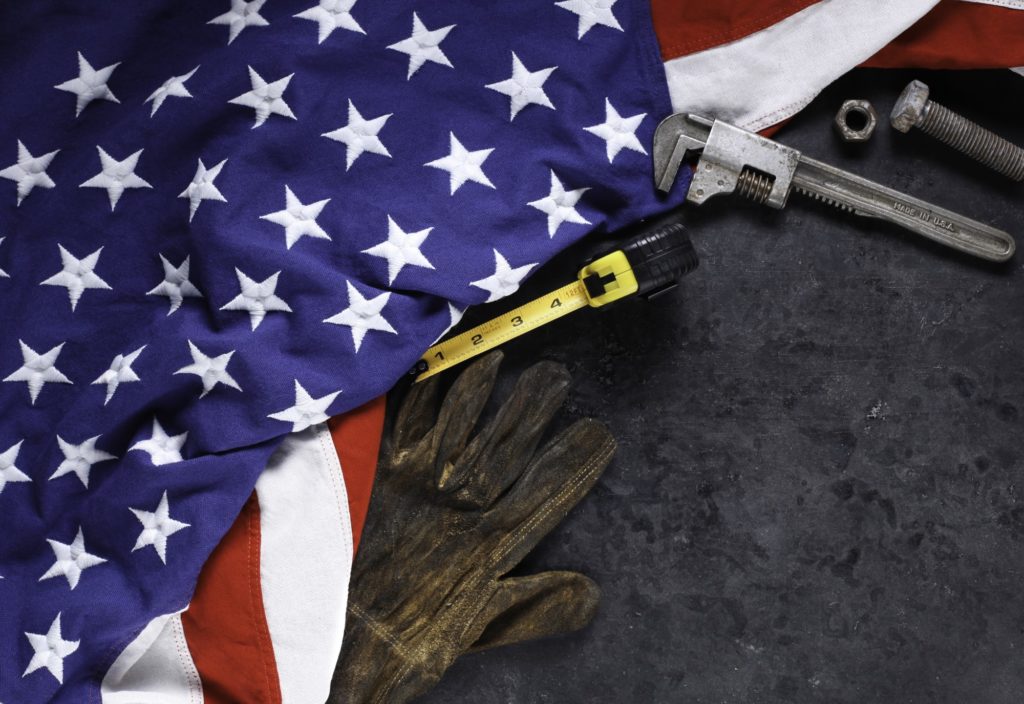 U.S. manufacturing may seem to be on the ropes these days with all the reports of a decline in activity, but as National Manufacturing Day neared on Friday, Americans’ perceptions about the national industrial backbone remained strong.
U.S. manufacturing may seem to be on the ropes these days with all the reports of a decline in activity, but as National Manufacturing Day neared on Friday, Americans’ perceptions about the national industrial backbone remained strong.
While only one-quarter of respondents to a recent survey believed the current state of American manufacturing is either stable or strong, 95 percent of the more than 1,000 participants said that manufacturing is important to the U.S. economy.
And while very few respondents would have had living memory of when American manufacturing provided the “Arsenal of Democracy” during World War II, a combined total of 87 percent of those surveyed believed that a strong manufacturing sector is very or at least somewhat important to national security.
Americans also remain big believers in the importance of “made in America,” with 62 percent of respondents saying they prefer to buy U.S.-made products.
“We are pleased to see the value of American manufactured brands remains strong, which matches the overall positive trends we’re seeing in the U.S. manufacturing industry,” said Tony UPhoff, president and CEO of Thomas, an information-services company for industrial purchasing that conducted the survey via Survey Monkey online.
But the survey results also revealed something troubling about what U.S. consumers think about the stuff made in their own country by their friends and neighbors and themselves: Only 55 percent of them believed that the quality of U.S.-made products is superior to the quality of those made in Asia or Central America.
Meanwhile, according to the survey, 57 percent of Americans believe products made in Europe are typically of the same quality as those built in the United States.
On a couple of current issues that are important to U.S. manufacturing, the survey held both good and bad news for American manufacturers.
About 46 percent of those surveyed believed that boosting tariffs on imported foreign goods and services is too disruptive for the U.S. economy; many CEOs and economists indeed are blaming President Trump’s trade-war-via-tariffs with China for increasing trouble signs in the U.S. manufacturing sector.
But on the crucial issue for U.S. manufacturers of being able to staff up to meet expected demand for skilled workers in the future, survey respondents offered some hope: 60 percent likely would encourage someone entering the workforce to pursue a career in manufacturing. And 79 percent said that government funding should be used to support apprenticeship initiatives.

Chief Executive Group exists to improve the performance of U.S. CEOs, senior executives and public-company directors, helping you grow your companies, build your communities and strengthen society. Learn more at chiefexecutivegroup.com.
0

1:00 - 5:00 pm
Over 70% of Executives Surveyed Agree: Many Strategic Planning Efforts Lack Systematic Approach Tips for Enhancing Your Strategic Planning Process
Executives expressed frustration with their current strategic planning process. Issues include:
Steve Rutan and Denise Harrison have put together an afternoon workshop that will provide the tools you need to address these concerns. They have worked with hundreds of executives to develop a systematic approach that will enable your team to make better decisions during strategic planning. Steve and Denise will walk you through exercises for prioritizing your lists and steps that will reset and reinvigorate your process. This will be a hands-on workshop that will enable you to think about your business as you use the tools that are being presented. If you are ready for a Strategic Planning tune-up, select this workshop in your registration form. The additional fee of $695 will be added to your total.

2:00 - 5:00 pm
Female leaders face the same issues all leaders do, but they often face additional challenges too. In this peer session, we will facilitate a discussion of best practices and how to overcome common barriers to help women leaders be more effective within and outside their organizations.
Limited space available.

10:30 - 5:00 pm
General’s Retreat at Hermitage Golf Course
Sponsored by UBS
General’s Retreat, built in 1986 with architect Gary Roger Baird, has been voted the “Best Golf Course in Nashville” and is a “must play” when visiting the Nashville, Tennessee area. With the beautiful setting along the Cumberland River, golfers of all capabilities will thoroughly enjoy the golf, scenery and hospitality.
The golf outing fee includes transportation to and from the hotel, greens/cart fees, use of practice facilities, and boxed lunch. The bus will leave the hotel at 10:30 am for a noon shotgun start and return to the hotel after the cocktail reception following the completion of the round.